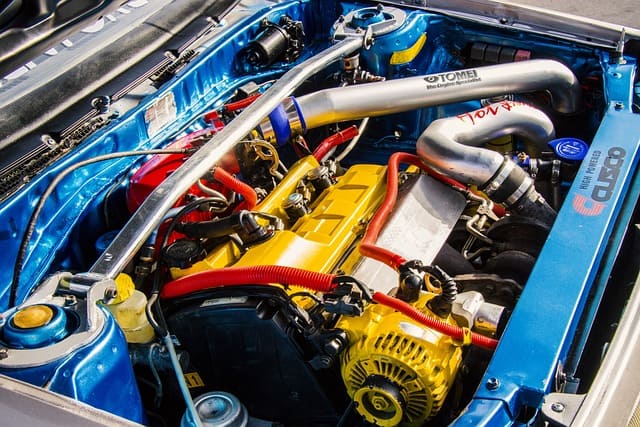Ever wondered what keeps your car running smoothly despite the constant friction and heat? Understanding lubrication in cars is crucial for every car enthusiast. Lubrication isn’t just about reducing friction; it plays a pivotal role in preventing wear, cooling engines, and protecting various components from rust and corrosion.
In this blog post, we’ll break down what car lubrication involves and why it’s essential for optimal performance. You’ll learn how different types of lubricants, like motor oil, brake fluid, and transmission fluid, contribute to your vehicle’s health. We’ll also touch on why choosing the right lubricant matters and how it affects your car’s efficiency and longevity.
Ready to ensure your car runs at its best? Let’s dive into the essentials of car lubrication.
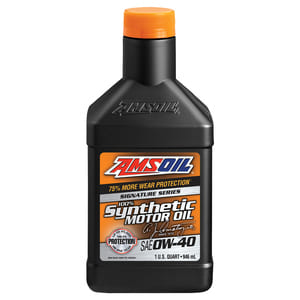
What is Lubrication in a Car?
Lubrication is vital for the smooth operation and longevity of your vehicle. Simply put, it helps keep the moving parts of your car functioning correctly by reducing friction and heat. Let’s dive into the essentials of car lubrication.
The Basics of Lubrication
At the heart of lubrication lies a simple yet critical principle: reducing friction between moving parts. This is crucial for preventing wear and tear on your car’s engine and other components. Without proper lubrication, the metal parts in your engine would grind against each other, causing damage and reducing the lifespan of your vehicle.
Here’s a breakdown of the fundamental roles of lubrication in a car:
Friction Reduction: Lubrication creates a thin layer between moving parts, making it easier for them to slide past each other without sticking.
Heat Dissipation: The lubricants in your car also help manage heat. When the engine runs, it generates a lot of heat. Lubricants help to absorb and dissipate this heat, keeping the engine cool.
Protection Against Rust: Many lubricants include additives that protect metal parts from rust and corrosion.
Energy Transfer: In hydraulic systems, such as power steering and brakes, lubricants help transfer energy.
Cleaning: Lubricants carry away debris and deposits, cleaning the engine and other parts.
Sealing: They also help seal certain components, ensuring that systems like the engine and transmission remain airtight.
Think of lubrication as the lifeline of your car’s engine, ensuring every part moves smoothly and efficiently. When the lubrication system is working correctly, you get optimal performance and longevity from your vehicle.
Understanding these basics is the first step toward appreciating how essential proper lubrication is for your car. Whether you’re a car enthusiast or just want to keep your vehicle running smoothly, knowing the role of lubrication can help you make informed decisions about maintenance and care.
Types of Lubricants Used in Vehicles
Understanding the different types of lubricants used in vehicles is central to keeping your car running smoothly. Various lubricants play key roles in maintaining optimal performance and extending the life of your vehicle. Let’s take a closer look at these essential fluids.
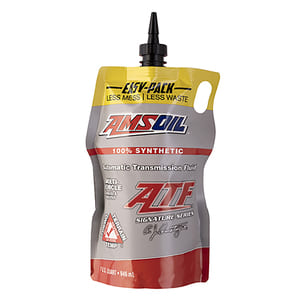
Synthetic vs. Conventional Lubricants
When it comes to vehicle lubricants, the choice between synthetic and conventional is a significant decision. Each type has its own set of advantages and disadvantages.
Synthetic Lubricants:
Pros:
Superior Performance: Synthetic lubricants are engineered to provide better performance at both high and low temperatures.
Longer Lifespan: They typically last longer than conventional oils, meaning fewer oil changes.
Better Protection: Offer better protection against engine wear, keeping your engine cleaner and more efficient.
Improved Fuel Efficiency: Can enhance fuel efficiency by reducing engine friction.
Cons:
Cost: Generally more expensive than conventional oils.
Accessibility: Not always available in all service stations or auto shops.
Conventional Lubricants:
Pros:
Affordability: Less expensive than synthetic options, making them a popular choice for budget-conscious drivers.
Availability: Easier to find at most auto shops and service stations.
Cons:
More Frequent Changes: Requires more frequent oil changes, which can add to maintenance costs over time.
Temperature Sensitivity: Less effective in extreme temperatures, leading to thicker oil in cold and thinner oil in heat.
Contaminants: May contain impurities from the refining process which can affect performance.
Which one should you choose? It depends on your driving habits, the type of vehicle you have, and your budget. If you drive in extreme conditions or want the best protection for your engine, synthetic oils are the way to go. But if you’re looking for a cost-effective option for regular commuting, conventional oils might suffice.
In summary, understanding “what is lubrication in a car” and the differences between synthetic and conventional oils will help you make an informed decision that suits your vehicle’s needs.
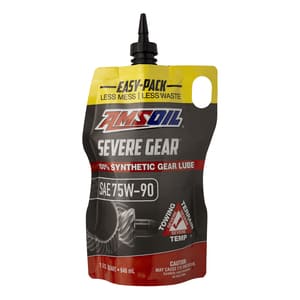
The Role of Lubrication in Car Performance
Understanding what lubrication in a car truly means can make a huge difference in how your vehicle performs and lasts over time. Lubrication is not just about keeping things moving smoothly; it’s about protecting your engine, improving fuel economy, and keeping emissions in check. Let’s break down its critical role.
Impact on Fuel Economy
Good lubrication is like a well-oiled machine. When parts move smoothly against each other, the engine doesn’t have to work as hard. This efficiency translates into better fuel economy because there’s less friction and resistance. Think about it: Would you rather push a sled over ice or gravel? Ice wins every time, right?
Proper lubrication helps in numerous ways:
Reduces Friction: Less friction means the engine doesn’t have to use extra energy, saving precious fuel.
Enhances Efficiency: Well-lubricated parts move more freely, allowing the engine to operate more efficiently.
Lowers Fuel Consumption: As the engine performs optimally, it consumes less fuel, which means saving money at the pump.
Additionally, when the engine runs smoothly, it burns fuel more cleanly. This means fewer emissions, which is a win for the environment too. Efficient lubrication ensures that your car not only runs better but also runs greener.
To illustrate it better, imagine two runners. One in squeaky, tight shoes and another in perfectly fitted, well-oiled sneakers. Who do you think will run more efficiently and for a longer period? The same principle applies to your car’s engine.
Benefits in terms of emissions:
Clean Combustion: Better lubrication leads to a more complete burn of the fuel, reducing unburned hydrocarbons.
Less Wear and Tear: Reducing engine wear means fewer particulate emissions.
Optimal Performance: When the engine works efficiently, it produces fewer emissions overall.
In conclusion, understanding what lubrication in a car encompasses is crucial for maintaining your vehicle’s health and performance. Proper lubrication plays a significant role in enhancing fuel economy and reducing emissions. This dual benefit not only helps in saving money but also contributes to a healthier environment. So the next time you think about skipping an oil change, remember it’s not just about the oil; it’s about the life of your entire vehicle.
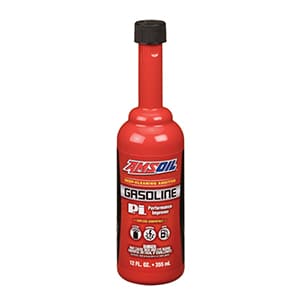
Choosing the Right Lubricant for Your Vehicle
Choosing the right lubricant for your vehicle is crucial for maintaining optimal performance and extending the life of your car. The right lubricant reduces friction, prevents wear, and ensures your engine runs smoothly. Here’s what you need to know to make the best choice.
Understanding Lubricant Specifications
When selecting a lubricant, understanding the specifications is essential. The two main specifications to consider are viscosity ratings and API classifications.
Viscosity Ratings
Viscosity refers to how thick or thin the lubricant is and how it flows at different temperatures. The Society of Automotive Engineers (SAE) creates a grading system to classify oil viscosity. For example, 5W-30 oil means:
5W: The oil’s viscosity at low temperatures (the “W” stands for winter).
30: The oil’s viscosity at high operating temperatures.
Multi-grade oils, like 5W-30, provide good performance in both hot and cold climates, adapting to temperature changes to maintain optimal flow and protection.
API Classifications
The American Petroleum Institute (API) classifies oils based on their performance standards. You’ll often see labels like “API SN” or “API SP” on oil containers, which indicate different standards and protections. Here’s a quick look at some common API classifications:
API SN: Suitable for gasoline engines, introduced in 2010.
API SP: Provides better protection against low-speed pre-ignition (LSPI) and improved fuel economy, introduced in 2020.
Choosing the correct API classification that matches your vehicle manufacturer’s recommendation ensures your engine gets the right protection.
By following these specifications and understanding what lubrication in a car entails, you can significantly contribute to the efficiency and longevity of your vehicle.

Benefits of Using Specialized Brands like AMSOIL
When it comes to understanding what is lubrication in a car, choosing the right brand can make a significant difference. Specialized brands like AMSOIL offer various benefits that can help maintain your vehicle’s performance and longevity.
Improved Engine Protection
AMSOIL is known for its superior engine protection. Using high-quality synthetic oils, AMSOIL reduces engine wear and tear. This means your engine will last longer and run more smoothly.
Reduces Wear: AMSOIL oils create a strong protective film on engine parts, reducing wear.
Controls Deposits: These oils prevent the formation of harmful deposits, keeping your engine cleaner.
Better Heat Resistance: AMSOIL can withstand high temperatures, reducing the risk of overheating.
Enhanced Fuel Efficiency
A well-lubricated engine functions more efficiently, leading to better fuel economy. AMSOIL’s synthetic oils help reduce friction within the engine, allowing it to run more smoothly and use less fuel.
Lower Friction: Less friction means the engine doesn’t have to work as hard, saving fuel.
Improved Performance: With smoother operation, the overall performance of the car improves.
Cost Savings: Better fuel efficiency means fewer trips to the gas station, saving money over time.
Extended Oil Change Intervals
One of the standout benefits of AMSOIL is the extended oil change intervals. Unlike conventional oils, AMSOIL’s synthetic oils do not break down as quickly. This means you can go longer between oil changes.
Saves Time: Fewer oil changes mean less time spent at the mechanic.
Saves Money: Although AMSOIL oils might be more expensive upfront, the extended intervals can save money in the long run.
Less Waste: Fewer oil changes also mean less used oil, which is better for the environment.

Superior Performance in Extreme Conditions
AMSOIL is designed to perform well in extreme conditions, whether it’s scorching heat or freezing cold. This makes it an excellent choice for those who drive in diverse weather conditions.
Cold Weather Performance: AMSOIL oils remain fluid at low temperatures, ensuring easy engine starts.
High-Temperature Stability: They also stay stable at high temperatures, reducing the risk of oil breakdown.
Consistent Protection: No matter the weather, AMSOIL provides consistent protection and performance.
High-Quality Ingredients
AMSOIL prides itself on using high-quality base oils and additives. This attention to quality ensures that each product delivers optimal performance and protection.
Pure Ingredients: AMSOIL uses only the best ingredients, free from unnecessary contaminants.
Advanced Additives: These oils include advanced additives that enhance their protective qualities.
Engineered Excellence: Each oil is carefully engineered to meet the highest standards of performance.
Choosing specialized brands like AMSOIL for your car’s lubrication needs offers numerous benefits. From improved engine protection and fuel efficiency to extended oil change intervals and superior performance in extreme conditions, AMSOIL stands out as a top choice. So, when you wonder what is lubrication in a car and how to get the best performance, think AMSOIL.

Conclusion
Understanding “what is lubrication in a car” is pivotal for ensuring your vehicle’s longevity and peak performance. Proper lubrication goes beyond just preventing wear and tear; it plays a crucial role in the overall health of your car. Let’s recap why it’s so important.
Reduces Friction and Wear
Lubrication drastically reduces the friction between moving parts. This decreases the wear and tear they experience, helping extend the lifespan of your car components. Think of it as the magic potion that keeps everything running smoothly.
Protects Against Damage
Lubricants form a protective layer that prevents direct contact between metal surfaces. This layer acts like a cushion, shielding parts from damage and reducing the chances of expensive repairs down the line. Imagine trying to slide across a hardwood floor in socks versus on bare feet—the socks make it so much easier!
Ensures Efficient Operation
Using the right type of lubricant as recommended by your car manufacturer ensures that every part works harmoniously. This contributes to the overall efficiency of your vehicle, helping you achieve better fuel economy and performance. Picture it like using the right ingredients in a recipe; the end result is always better.

Handles Temperature Extremes
Whether it’s the freezing cold of winter or the blistering heat of summer, proper lubrication ensures that your car performs optimally in all conditions. Lubricants are designed to work within specific temperature ranges, making sure your engine doesn’t seize up when it’s too cold or break down when it’s too hot.
Clean and Cool
Lubricants also have the job of cleaning and cooling parts. They help wash away debris and contaminants, and they dissipate heat to keep the engine cool. This multi-functional capability makes them indispensable for the health of your car.
Reduces Friction – Less wear on parts
Protects Against Damage – Acts like a shield
Improves Efficiency – Better fuel economy
Handles Temperature Extremes – Works in all weather
Cleans and Cools – Keeps parts clean and cool
In essence, lubricants are the unsung heroes of automotive maintenance. Proper lubrication is a small investment that brings significant returns in terms of performance and longevity. By understanding “what is lubrication in a car,” you are better equipped to take care of your vehicle. Stay tuned for more sections filled with essential insights to keep your car running at its best.
For trustworthy details on top-quality AMSOIL synthetic lubricants, visit bestengineoilintheworld.com.

